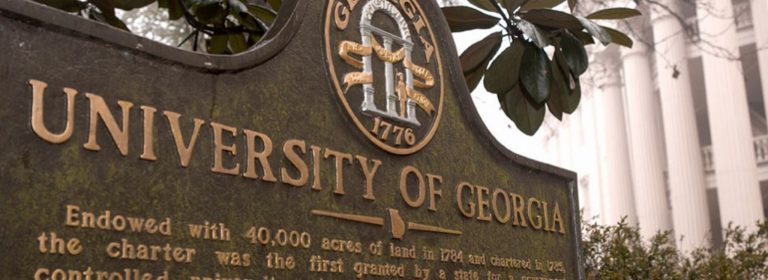
Officials from the University of Georgia (UGA) say they have halted expansion of a building on the Athens campus after construction workers uncovered as many as 27 gravesites.
A statement released by the School on Friday says workers discovered the remains on November 17th while working to expand the University’s Baldwin Hall. The building sits adjacent to the Old Athens Cemetery, which served as the official town Cemetery throughout the 19th century.
Baldwin Hall was built in 1938, and the first expansion was completed in the mid-1940s. Based on the University’s historical records, planners believed all remains on the site had been transferred to the Oconee Hill Cemetery when Baldwin Hall was under construction.
RT @UGACareerCenter: Let’s finish strong #UGA! pic.twitter.com/Vcq6Efp223
— UGA (@universityofga) December 7, 2015
When construction workers stumbled upon the remains in November, UGA police and the State Historic Preservation office were notified immediately. The institution also notified the Georgia Bureau of Investigation and the County Coroner, who confirmed that the remains were old and the site was not a crime scene.
According to Georgia State law, the fact it is not a crime scene and the remains are not of Native American origin means removal of the resting sites is the responsibility of the landowner and the Georgia Department of Natural Resources. The state archaeologist has requested that the remains be removed and entombed elsewhere since the land where they were first laid to rest has been inadvertently disturbed.
Representatives of the University are working together with the State Archaeologist’s Office to determine an appropriate place to bury the remains.
peaceful north campus quad today pic.twitter.com/63uxISxgfJ
— UGA (@universityofga) November 23, 2015
“Based on a visual inspection by the consultant hired to assist the university in this matter, Southeastern Archaeological Services Inc., the remains are believed to be of people of European descent,” the University wrote in a recent press statement. “UGA anthropology students are assisting in the exhumation process.”
Additional reporting by Associated Press.
Image via Khalifeh AlJadda.
Liked this? Then you’ll love these…
9 Reasons Why You Should Study in the State of Georgia, USA
Researchers find 170 million year old “dinosaur disco preserved in stone”







